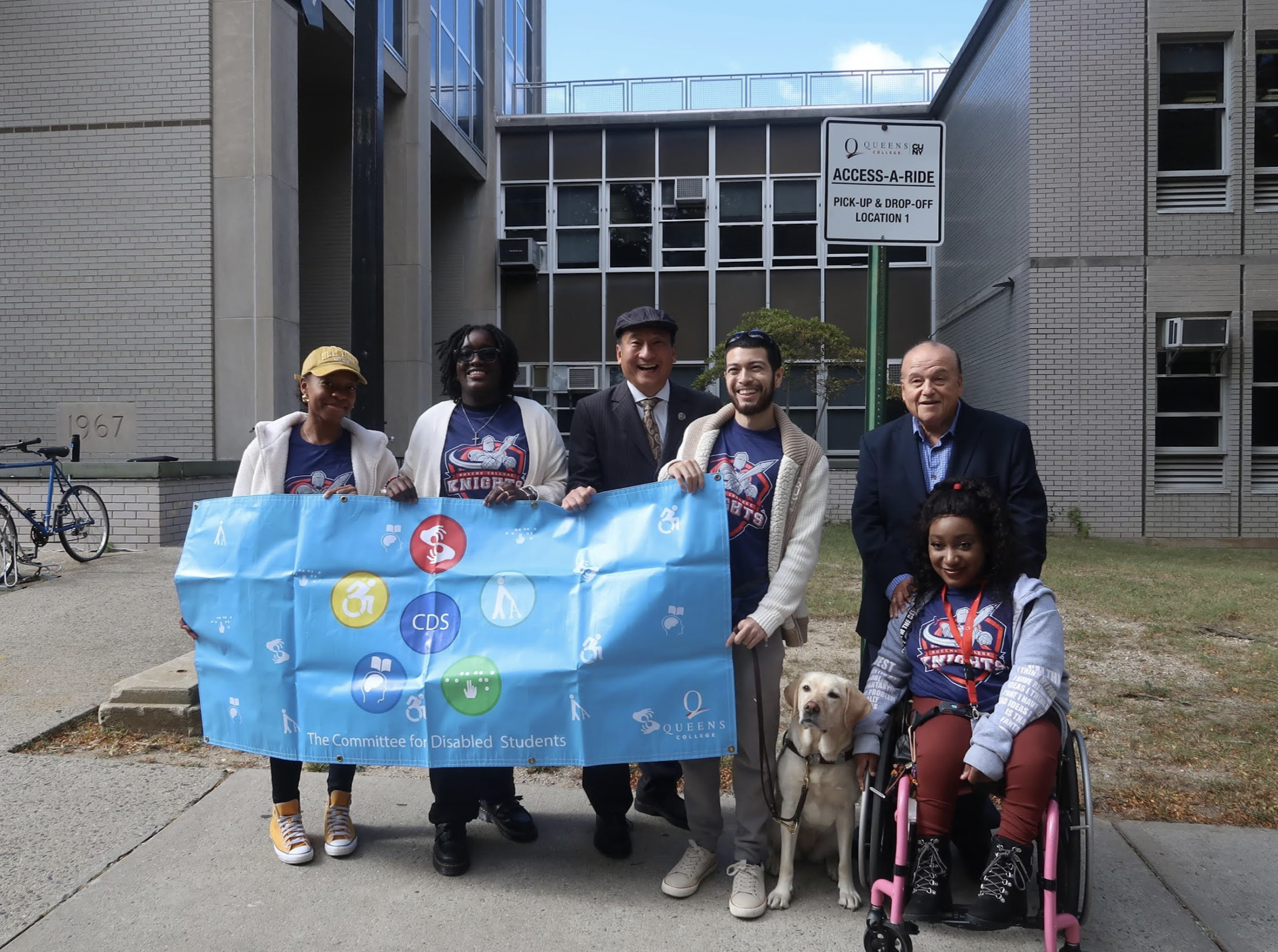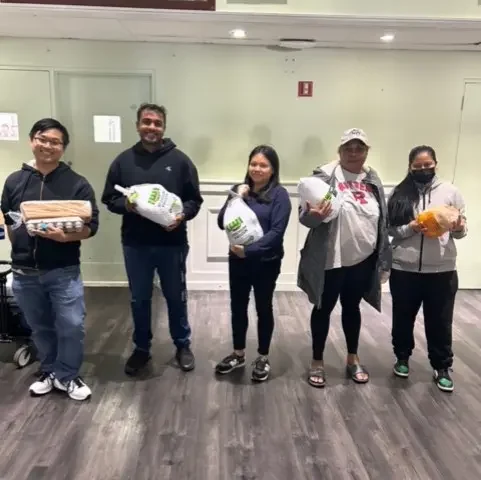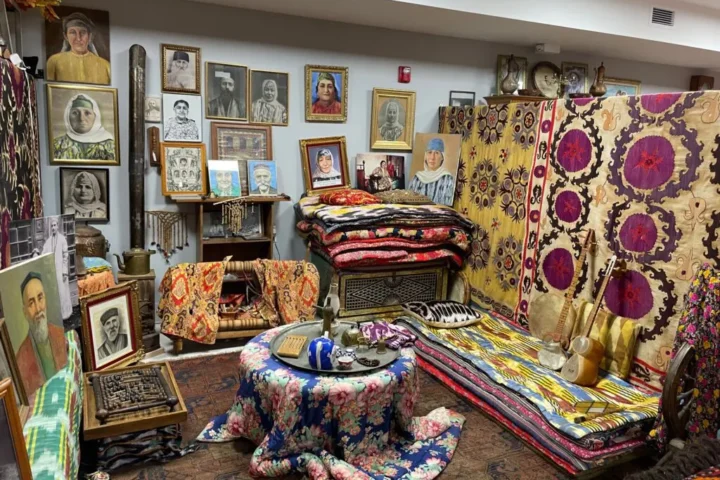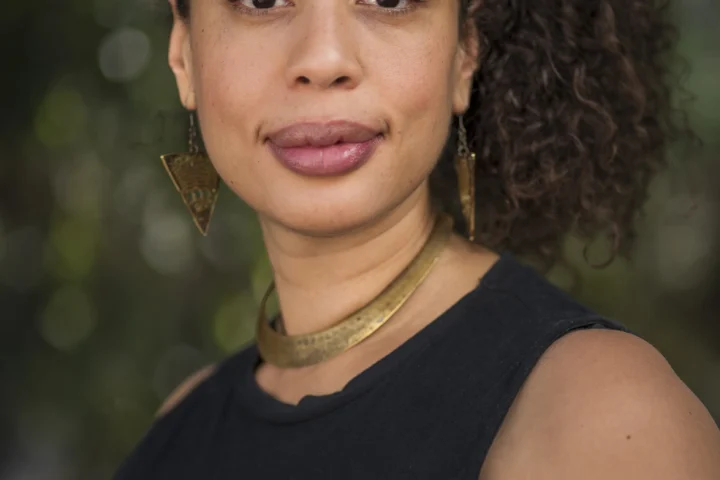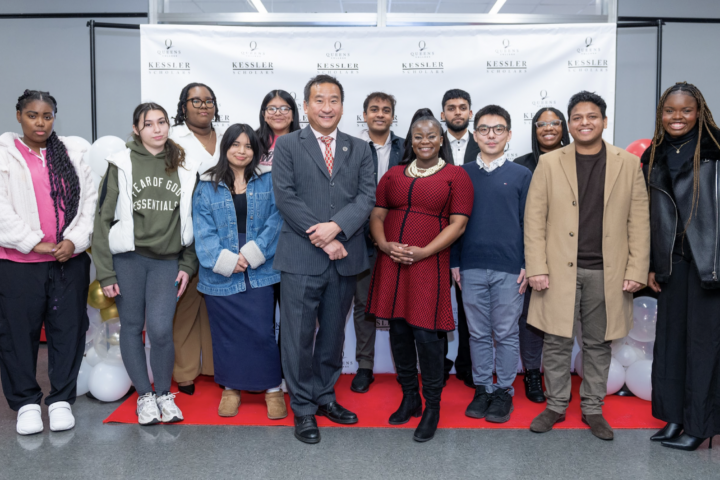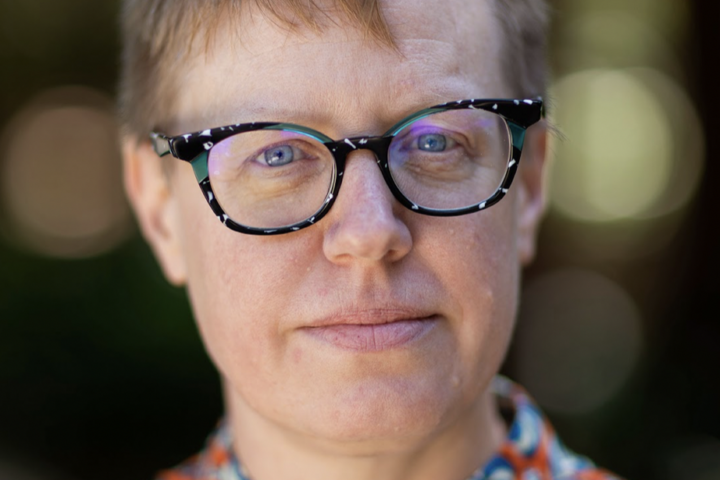Since its founding in 1972, the CDS has been committed to advocating for students, with a renewed focus on expanding accessibility in recent years.
Under the leadership of President Arturo Soto—a senior majoring in History in Secondary Education with double minors in Anthropology and Honors in the Humanities—CDS has prioritized expanding accessibility for students with both visible and invisible disabilities. The CDS is working closely with the Office of Special Services and the Office of Buildings and Grounds to create a more accessible and inclusive environment for students.
One of CDS’s advocacy initiatives has been relocating the Assistive Technology (AT) Testing Lab. The AT Lab serves as the official designated accommodating testing center for students to take their exams. Students with accommodations for disabilities take exams in the AT lab. Currently located in the basement of Frese Hall, the AT lab has been difficult for students with mobility impairments to access because of frequent elevator outages.
“That’s why CDS has advocated to move the lab to the second floor of Kiely Hall, where it is more accessible,” Soto said. “We’re working with Student Affairs to make this move happen by the start of the spring semester so students can utilize the new space in the new year.”
CDS has also improved campus transportation for students with disabilities by adding three new Access-A-Ride stops, now totalling four across QC’s 80-acre campus. Previously, students relying on paratransit faced challenges navigating campus with a single drop-off point near Public Safety. Now, stops in front of Kiely Hall, the Summit Apartments, and Queens Hall offer more accessible transit options.
According to Soto, CDS is working to make graduation an inclusive experience for everyone. Currently held on the quad, the ceremony’s wide, grassy areas can be difficult for wheelchair users and others with mobility aids to navigate. To address this, CDS is collaborating with campus departments to place mats along the aisles, making it easier for those with mobility needs to fully participate in the procession.
Another initiative for this year is an adaptive campus tour for prospective blind and low-vision students, with the help of Student Affairs and Admissions to increase outreach and retention.
“Our goal is to make sure all students feel supported and welcome from day one,” Soto said.
This year, CDS is emphasizing support for neurodivergent students. Soto and CDS are working together to explore options for creating quieter, private study spaces, similar to the library’s cubicles, specifically for neurodivergent students.
To further promote accessibility and inclusivity, CDS will hold its first town hall since COVID, providing students with a platform to voice feedback and ideas. Representatives from Buildings and Grounds, including Assistant Vice President for Facilities Planning and Operation Ziko Kersic, are expected to attend to discuss accessibility-related capital projects.
The name CDS can be misleading, as the committee is not limited to students with disabilities. Soto encourages allies and non-disabled students to get involved by volunteering at events or advocating for accessibility on campus. In addition to its advocacy work, CDS offers free tutoring services to disabled students, employing both QC students and alumni as tutors. Tutors are paid $18 – $20 per hour, depending on experience and workload, and CDS is actively seeking new tutors.
Soto’s vision for CDS goes beyond just serving students with disabilities; he hopes to foster an inclusive community that engages all members of QC.
“You don’t have to be disabled to be an ally or to want to make campus more inclusive,” Soto said. Since taking on the role of CDS president in 2023, he has developed partnerships with key campus offices, including Student Affairs, the Writing Center, and the Office of Appeals, to rally broad-based support for CDS initiatives.
Soto’s commitment to accessibility extends beyond QC. As Secretary of the CUNY Coalition for Students with Disabilities, which represents over 11,000 self-identified disabled students, he has advocated for disability rights on a larger scale, including testifying in Albany on higher education issues affecting disabled students. He is now running for the position of CCSD Chair.
Soto emphasizes the importance of recognizing disability rights as human rights. “The disability community is the one minority group anyone can join at any point in life—through birth, an accident, or simply aging. Disability rights are human rights, and building a more accessible tomorrow isn’t just for those currently with disabilities; it’s for anyone who might need support in the future,” he said. “If you’re lucky enough to live long enough, you will experience disability in some form. Supporting accessibility today is an investment in everyone’s future.”


